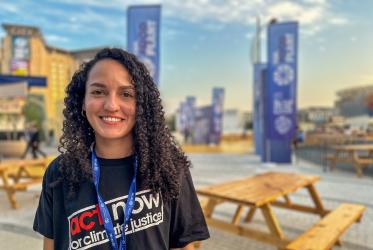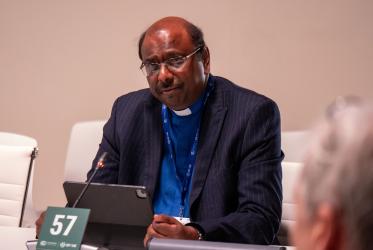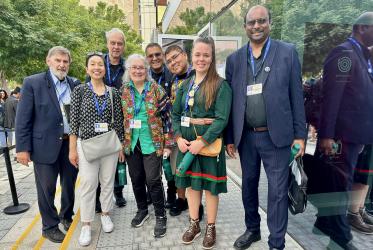Displaying 21 - 40 of 306
26 February 2024
Was können Kirchen unternehmen, um moderne Sklaverei zu verhindern?
26 February 2024
What can churches do to prevent modern slavery?
22 February 2024
Thirsting for peace: Gaza's water woes in the midst of war
31 January 2024
Ellyanne Chlystun-Githae Wanjiku to COP28: “listen more to children”
13 December 2023
WCC webinar explores decolonizing beauty
11 December 2023
At COP28, WCC general secretary hopes for “less talk and more walk”
01 December 2023
As floods rage in eastern Africa, church acts to save the people
22 November 2023
Recommended Practices to Combat HIV-Related Stigma
A Guidebook for Local Faith Communities
05 October 2023
Faith Sector Implementation of the Global AIDS Strategy
05 October 2023













